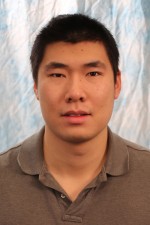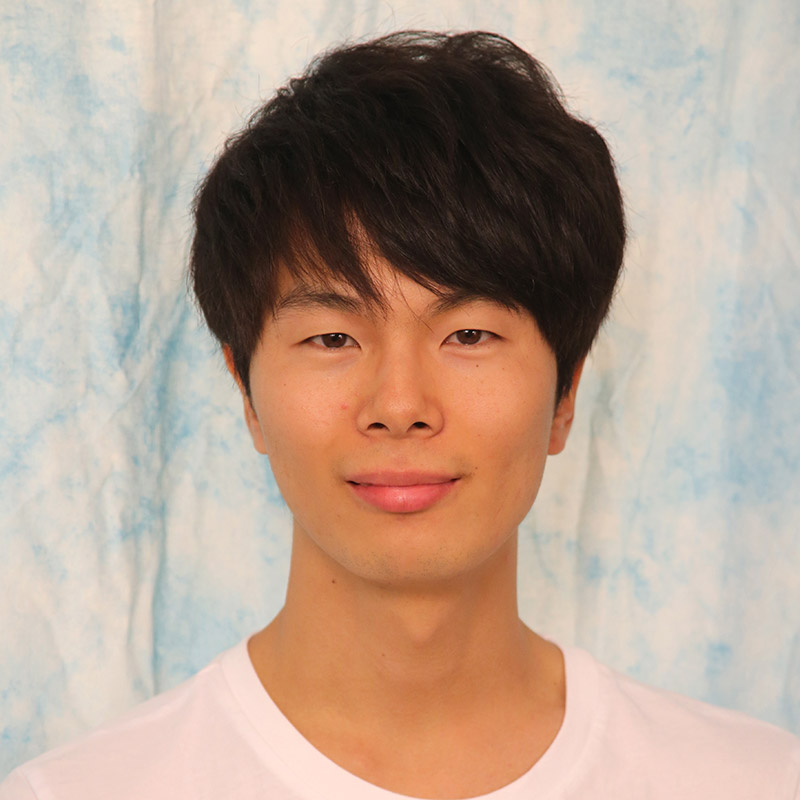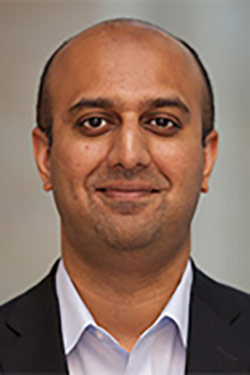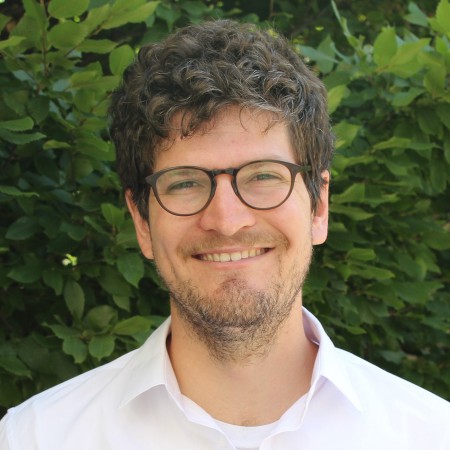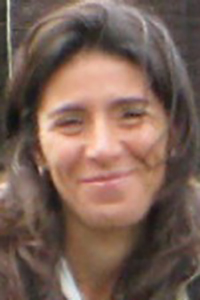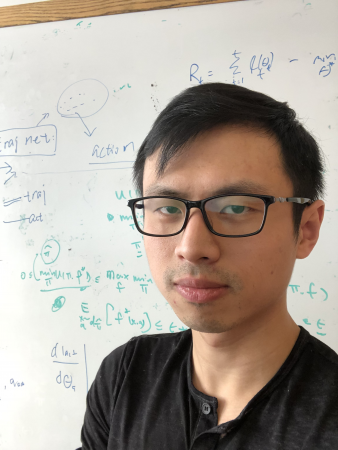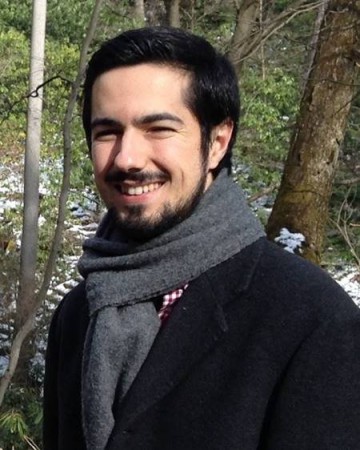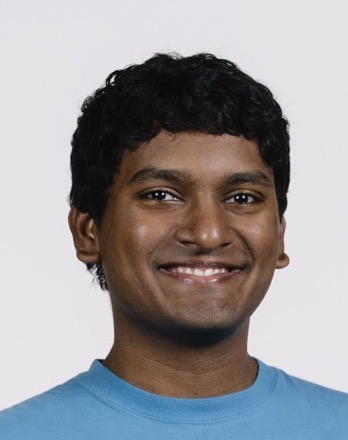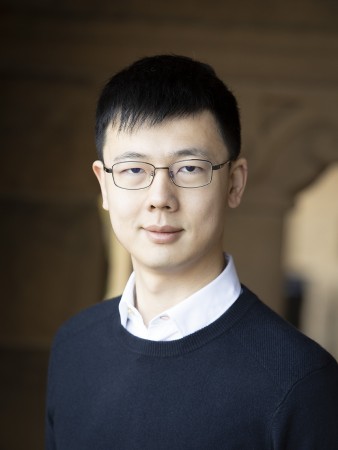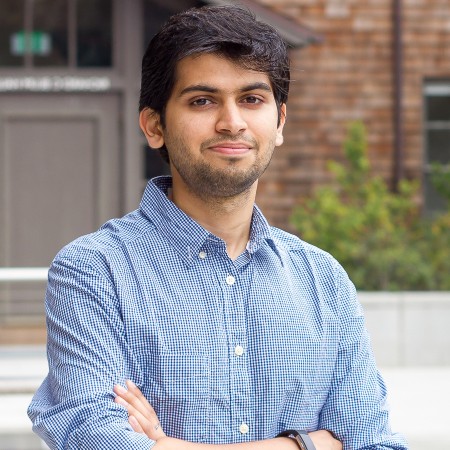Carnegie Mellon University
Learning with Clusters
Abstract: Clustering, the problem of grouping similar data, has been extensively studied since at least the 1950's. As machine learning becomes more prominent, clustering has evolved from primarily a data analysis tool into an integrated component of complex robotic and machine learning systems, including those involving dimensionality reduction, anomaly detection, network analysis, image segmentation and [...]
Carnegie Mellon University
Spatiotemporal Understanding of People Using Scenes, Objects, and Poses
Abstract: Humans are arguably one of the most important entities that AI systems would need to understand to be useful and ubiquitous. From autonomous cars observing pedestrians to assistive robots helping the elderly, a large part of this understanding is focused on recognizing human actions, and potentially, their intentions. Humans themselves are quite good at [...]
Faster, Safer, Smaller: The future of autonomy needs all three
Abstract In this talk I will start with state estimation as my PhD work. Very often, state estimation plays a crucial role in a robotic system serving as a building block for autonomy. Challenges are to carry out state estimation in 6-DOF, in real-time at high frequencies, with high precision, robust to aggressive motion and [...]
Carnegie Mellon University
Sensing, Measuring, and Modeling Social Signals in Nonverbal Communication
Abstract: Humans convey their thoughts, emotions, and intentions through a concert of social displays: voice, facial expressions, hand gestures, and body posture, collectively referred to as social signals. Despite advances in machine perception, machines are unable to discern the subtle and momentary nuances that carry so much of the information and context of human communication. [...]
Building a Force-Controlled Actuator (Company)
Abstract: In 2014, I was lucky enough to be one of 5 people to start HEBI Robotics, with the dream of eventually making the task of building custom robots as easy as building with Lego. A few years later we are now 10 people, and our first product, a series of modular force-controlled actuators, is [...]
Minimalist Visual Perception and Navigation for Consumer Drones
Abstract: Consumer drone developers often face the challenge of achieving safe autonomous navigation under very tight size, weight, power, and cost constraints. In this talk, I will present our recent results towards a minimalist, but complete perception and navigation solution utilizing only a low-cost monocular visual-inertial sensor suite. I will start with an introduction of [...]
2019 RI Faculty Dinner
RI Faculty Social
All Robotics Institute faculty are invited to attend this informal team-building business/social event. Beverages and snacks will be provided.
Social Perception for Machines
Abstract: Despite decades of progress, machines remain intelligent tools rather than collaborative partners in individual human enterprise. A key reason is that machine perception of inter-personal communication is largely unsolved and a computationally accessible representation of such behavior remains elusive. In this talk, I will describe our research arc over the past decade at CMU [...]
Geometry Processing in The Wild
Abstract: Geometric data abounds, but our algorithms for geometry processing are failing. Whether from medical imagery, free-form architecture, self-driving cars, or 3D-printed parts, geometric data is often messy, riddled with "defects" that cause algorithms to crash or behave unpredictably. The traditional philosophy assumes geometry is given with 100% certainty and that algorithms can use whatever [...]
Automatic Human Behavior Analysis and Recognition for Research and Clinical Use
Nonverbal behavior is multimodal and interpersonal. In several studies, I addressed the dynamics of facial expression and head movement for emotion communication, social interaction, and clinical applications. By modeling multimodal and interpersonal communication my work seeks to inform affective computing and behavioral health informatics. In this talk, I will address some of my recent work [...]
Service Robots for All
Robots have the unique potential to help people, especially people with disabilities, in their daily lives. However, providing continuous physical and social support in human environments requires new algorithmic approaches that are fast, adaptable, robust to real-world noise, and can handle unconstrained behavior from diverse users. This talk will describe my work developing and studying [...]
Carnegie Mellon University
Optimal control of compliant bipedal gaits and their implementation on robot hardware
Abstract: Legged animals exhibit diverse locomotion patterns known as gaits, which are capable of robustly traversing terrains of variable grade, roughness, and compliance. Despite the success of legs in nature, wheeled solutions still dominate the field of robotics. State-of-the-art humanoid robots have not yet demonstrated locomotion behaviors that are as robust or varied as their [...]
Self Driving Cars and AI: Transforming our cities and our lives
Abstract: Artificial intelligence and machine learning are critical to reaching full autonomy in self driving cars. I will present two autonomy systems along with the use of machine learning in each of them. I will summarize recent progress in commercializing these systems and make some observations about the potential impact of these systems in our [...]
Carnegie Mellon University
Towards Generalization and Efficiency in Reinforcement Learning
Abstract: In classic supervised machine learning, a learning agent behaves as a passive observer: it receives examples from some external environment which it has no control over and then makes predictions. Reinforcement Learning (RL), on the other hand, is fundamentally interactive : an autonomous agent must learn how to behave in an unknown and possibly [...]
Resilient Safety Assurance for Human-Centered Autonomous Systems
In order for autonomous systems like robots, drones, and self-driving cars to be reliably introduced into our society, they must be able to actively account for safety during their operation. While safety analysis has traditionally been conducted offline for controlled environments like cages on factory floors, the much higher complexity of open, human-populated spaces like [...]
Carnegie Mellon University
Rethinking the Relationship between Data and Robotics.
Abstract: While robotics has made tremendous progress over the last few decades, most success stories are still limited to carefully engineered and precisely modeled environments. Interestingly, one of the most significant successes in the last decade of AI has been the use of Machine Learning (ML) to generalize and robustly handle diverse situations. So why [...]
Robotic Morphing Matter
Abstract: Morphing matter harnesses the programmability in material structures and compositions to achieve transformative behaviors and integrates sensing, actuation, and computation to create adaptive and responsive material systems. These material systems can be leveraged to design soft robots, self-assembling furniture, adaptive fabrics, and self-folding foods. In this talk, Lining presents the recent works in the [...]
Carnegie Mellon University
Robust Active SLAM for Real-time Large-scale Indoor Dense 3D Reconstruction
Abstract: Real-time dense 3D reconstruction of indoor environments has been a popular research field due to its wide application, such as inspection, virtual / augmented reality (VR/AR), and service robotics. While many state-of-the-art algorithms are capable of reconstructing accurate 3D dense models in general indoor scenes, robustness is still an unsolved problem for all of [...]
Faculty Candidate: Yuke Zhu
Talk: Closing the perception-action loop Abstract: Robots and autonomous systems have been playing a significant role in the modern economy. Custom-built robots have remarkably improved productivity, operational safety, and product quality. However, these robots are usually programmed for specific tasks in well-controlled environments, unable to perform diverse tasks in the real world. In this talk, I will [...]
The Mechanical Side of Artificial Intelligence
Abstract: Artificial Intelligence typically focuses on perception, learning, and control methods to enable autonomous robots to make and act on decisions in real environments. On the contrary, our research is focused on the design, mechanics, materials, and manufacturing of novel robot platforms that make the perception, control, or action easier or more robust for natural, unstructured, and [...]
Self-Directed Learning
Abstract: Generalization, i.e., the ability to adapt to novel scenarios, is the hallmark of human intelligence. While we have systems that excel at recognizing objects, cleaning floors, playing complex games and occasionally beating humans, they are incredibly specific in that they only perform the tasks they are trained for and are miserable at generalization. In [...]


